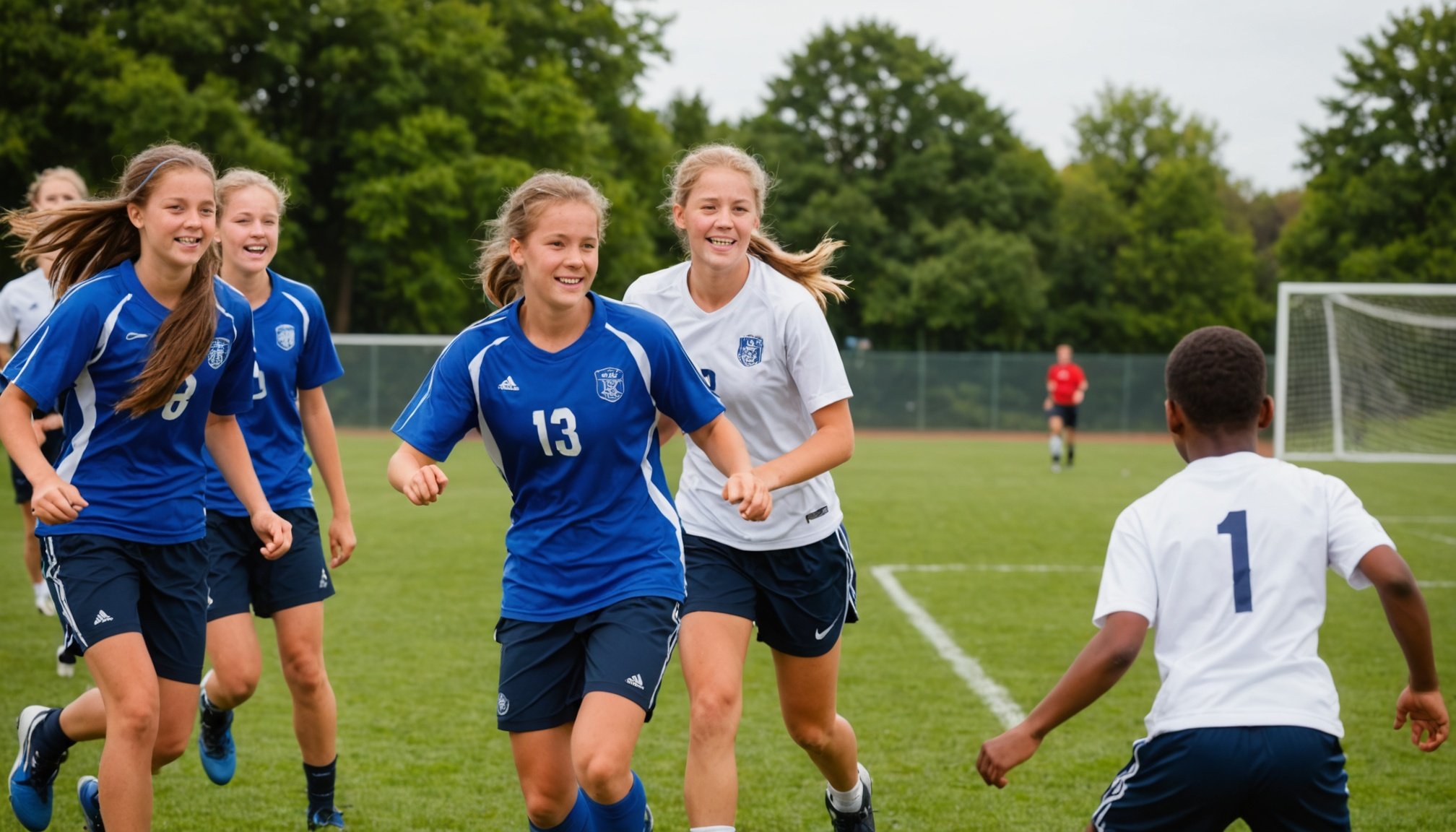Understanding Mental Well-Being in Teens
Mental well-being in teenagers refers to their ability to cope with stress, build relationships, and make decisions. The teenage years are especially crucial due to significant physical and emotional changes. Teenage psychology examines these changes and how they affect mental health. Teens often face challenges such as anxiety, depression, and stress from academic and social pressures. Addressing these issues helps in developing emotional resilience.
Physical activity can have a profound impact on mental health in adolescents. Regular exercise is associated with reduced symptoms of depression and anxiety. Activities like running, dancing, or team sports release endorphins, which are chemicals in the brain that act as natural mood lifters. Moreover, engaging in physical activity can lead to better sleep quality, improved concentration, and a sense of accomplishment, all of which contribute to better mental well-being.
In the same genre : Elevate your badminton skills: custom workouts to sharpen your reaction time
Furthermore, participating in structured physical activities helps teens develop a routine, which can be beneficial in managing symptoms of stress and anxiety. Building mental strength through physical endurance is a key aspect of nurturing emotional resilience. Understanding these elements is vital for supporting teenagers in achieving balanced mental health.
Role of Team Sports in Fostering Connections
Participating in team sports not only boosts physical health but also plays a crucial role in building social connections among teenagers. Engaging in sports creates a platform for adolescents to make friends and develop essential social skills. The dynamics of working towards a common goal promote teamwork and foster trust, allowing teens to navigate complex social landscapes more confidently.
Topic to read : Enhancing your running endurance: the complete handbook for tracking heart rate variability
Building Relationships through Sports
Team sports serve as an excellent medium for nurturing friendships. The interactions on the field cultivate effective communication skills and collaboration, essential elements of successful relationships. The shared experience of training and competing together strengthens bonds and builds trust amongst teammates, preparing them for future social interactions.
Community Engagement and Belonging
Local sports teams often become a microcosm of community engagement, providing teens with a sense of belonging. Being part of a supportive community helps adolescents feel valued and respected, enhancing their self-worth and emotional resilience. These teams not only connect players with each other but also with wider community networks, significantly contributing to their overall well-being. This structured environment allows teens to grow, develop, and thrive both individually and collectively through shared experiences and support networks.
Psychological Benefits of Participation
Participating in team sports offers numerous psychological benefits for teenagers. It significantly enhances self-esteem and confidence, as youth achieve personal and team milestones, encouraging growth. Engaging in sports presents challenges that require adaptability and problem-solving, fostering resilience. The success and failures experienced in sports provide valuable lessons, equipping teens to handle various life situations with determination and perseverance.
Moreover, sports promote the development of a positive mindset through structured competition and teamwork. Positive psychology principles, such as focusing on strengths and celebrating accomplishments, play a pivotal role. As teens navigate the demands of sports, they learn to manage pressure, celebrate victories, and accept outcomes, which contributes to emotional and mental fortitude.
Building resilience and self-assuredness through sports also extends into academic and social realms, supporting overall development. This holistic growth is integral in the teenage years, helping to lay a strong foundation for adulthood. As they work towards common goals, teens harness the power of sports to transform their outlook and capabilities, preparing them for future challenges with unwavering confidence.
Case Studies and Expert Opinions
Exploring the intersection of sports and mental health, expert analysis provides crucial insights into the benefits of team sports for teens. Sports psychologists often highlight how structured physical activity can bolster mental resilience and self-worth. Research studies consistently show that adolescents involved in sports display improved concentration, mood, and emotional management.
Insights from Sports Psychologists
Experts in the field assert the psychological impact sports have on teenagers is profound. Findings from research studies suggest that participation can alleviate symptoms of anxiety and depression by promoting healthier coping mechanisms and cognitive engagement. Psychological benefits are not limited to improved moods but extend to enhanced social skills and confidence.
Real-Life Success Stories
Real-world examples amplify these findings, illustrating how team sports transform teens’ lives. Case studies reveal young athletes gaining self-esteem through overcoming challenges and celebrating milestones with their teams. Testimonials from parents and coaches witness the growth in interpersonal skills and emotional resilience. Coaches often report witnessing firsthand the development of a positive mental attitude, rooted in experiencing both the triumphs and trials of sports participation.
Practical Advice for Encouraging Teen Involvement
Involving teens in youth sports offers numerous benefits, but parental guidance and coaching are key to successful participation. Parents can play a vital role by supporting their adolescents’ interest in sports while promoting a balance between sports, academics, and social life. Encouraging open communication about their interests and challenges ensures parents stay informed about their teen’s needs and progress.
Coaching tips for fostering an inclusive environment include focusing on team collaboration and individual growth. Coaches should create a positive atmosphere where teenagers feel valued and motivated. Providing constructive feedback and recognising achievements builds confidence and encourages personal development.
It’s important to set realistic expectations that prioritise enjoyment alongside skill improvement. This approach helps teens develop a healthy attitude towards competition and teamwork, leading to enhanced emotional resilience. Encouraging a supportive team dynamic also nurtures lifelong social connections.
Promoting a balanced lifestyle ensures teens avoid burnout and remain engaged in their pursuits. By emphasising the importance of well-being in sports activities, parents and coaches can guide teens towards fulfilling, enjoyable experiences that contribute positively to their mental health and overall development.
Conclusion: The Future of Teen Sports and Mental Health
The integration of sustainable sports programs in schools and communities is crucial for the long-term mental health benefits of teenagers. By focusing on youth development, these programs can offer a holistic approach, blending physical activity with strategies that enhance emotional and cognitive growth. Schools and local organisations play a pivotal role in fostering a healthy sports culture, encouraging exploration and enjoyment alongside skill development.
By prioritising mental well-being, sports programs can help teens build resilience, self-esteem, and positive social connections. This approach ensures that sports not only improve physical health but also contribute significantly to a balanced and healthy mind. When schools and communities collaborate, they create environments where adolescents can thrive, preparing them for adulthood with strong mental and emotional foundations.
The long-term mental health benefits of teen sports participation extend beyond adolescence into adulthood. Developing habits of regular physical activity and teamwork equips young people with the tools needed for lifelong well-being. Future sports initiatives should continue to integrate mental health awareness, ensuring that the benefits of participation in team sports are maximised, creating a positive impact on current and future generations.











